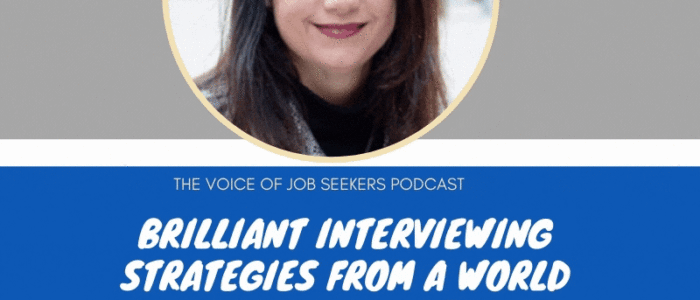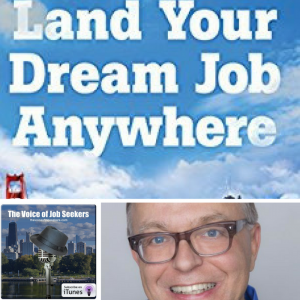
Podcast: Play in new window | Download | Embed
Subscribe: Apple Podcasts | RSS
The little things could turn your interviewing skills around, no matter your professional level, including the C-Suite. Lisa Rangel is back on the show to discuss how to take your interviewing skills to the next level even if you’re interviewing remotely.
You are more than welcome to join the discussion. Here are three ways you can:
– Call and leave a voicemail at 708-365-9822, or text your comments to the same number
– Go to TheVoiceofJobSeekers.com, press the “Send Voicemail” button on the right side of your screen and leave a message
– Send email feedback to mark@thevoiceofjobseekers.com
More about Lisa:
She is the founder and Managing Partner of Chameleon Resumes. Her blog is a Forbes top 100 website for your Career. She is also a 10-time Certified Professional Resume Writer (CPRW), former 13-year recruiter, and Job Search Expert.
Highlights from our conversation:
Lisa notices no set pattern to the hiring process as it’s “all over the place.”
Listen to the story she tells about a client going in for the 14th interview
Lisa has seen clients interview up to four times over 10 days.
We discussed the mind shift that needs to take place when interviewing remotely.
“…people go into interviews and they subliminally or consciously wait for somebody to lead the show and wait to see what they should be mimicking or what they should be mirroring back…”
We discussed the importance of making the interviewer feel comfortable in conversation mode, or as Lisa analogies it as, “…if someone came into your home…”
Offensive mindset (How to)
Explaining gaps questions gracefully Not everyone wants to go remote, and although all jobs are not remote, what does that say about the worker or candidate who is not willing?
Recruiters are hearing and accepting how employment is affected by the pandemic so it’s OK to “…latch on to that.”
About Mark Anthony Dyson
I am the "The Voice of Job Seekers!" I offer compassionate career and job search advice as I hack and re-imagine the job search process. You need to be "the prescription to an employer's job description." You must be solution-oriented and work in positions in companies where you are the remedy. Your job search must be a lifestyle, and your career must be in front of you constantly. You can no longer shed your aspirations at the change seasons. There are strengths you have that need constant use and development. Be sure you sign up to download my E-Book, "421 Modern Job Search Tips 2021!" You can find my career advice and work in media outlets such as Forbes, Inc., Fast Company, Harvard Business Review, Glassdoor, and many other outlets.




